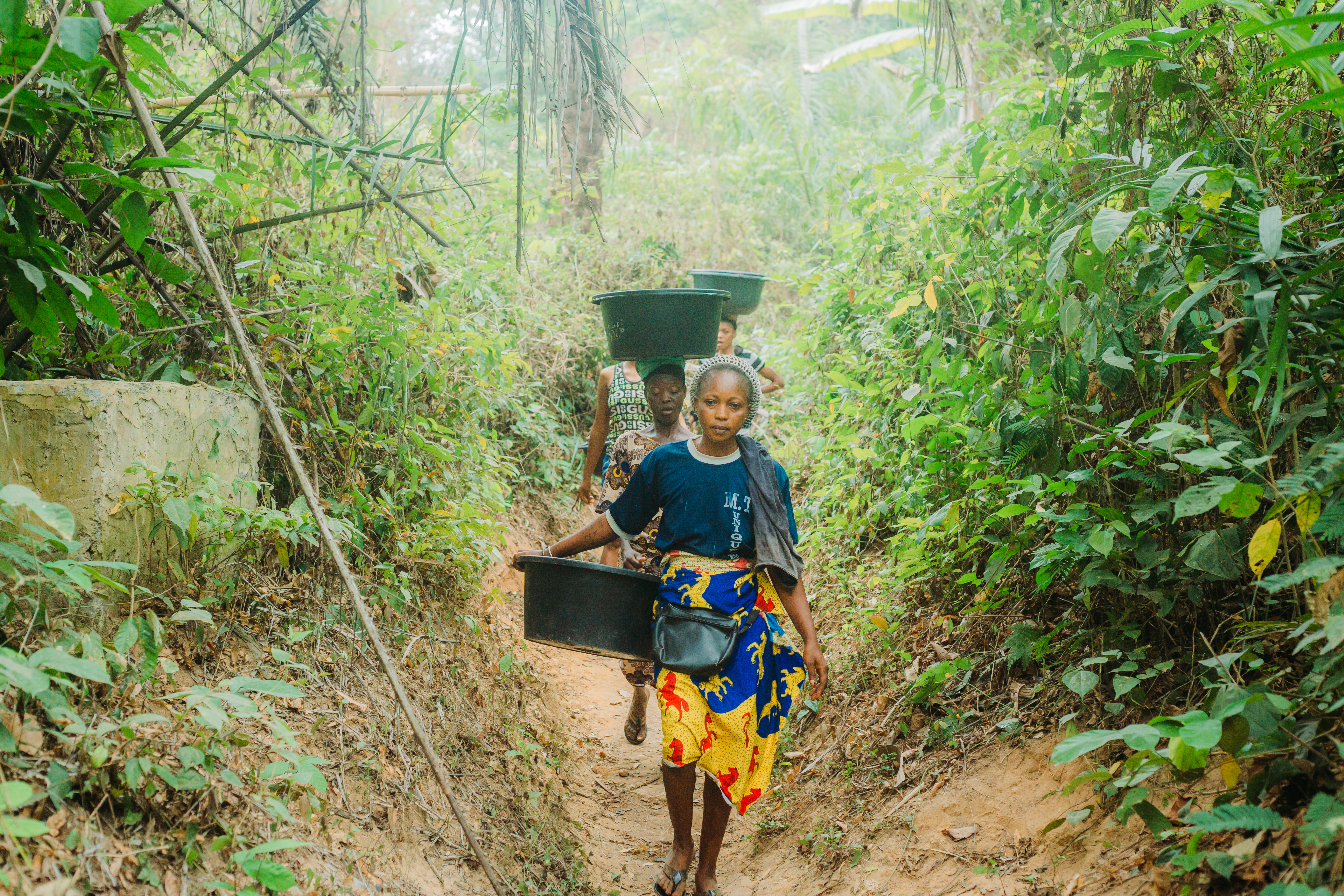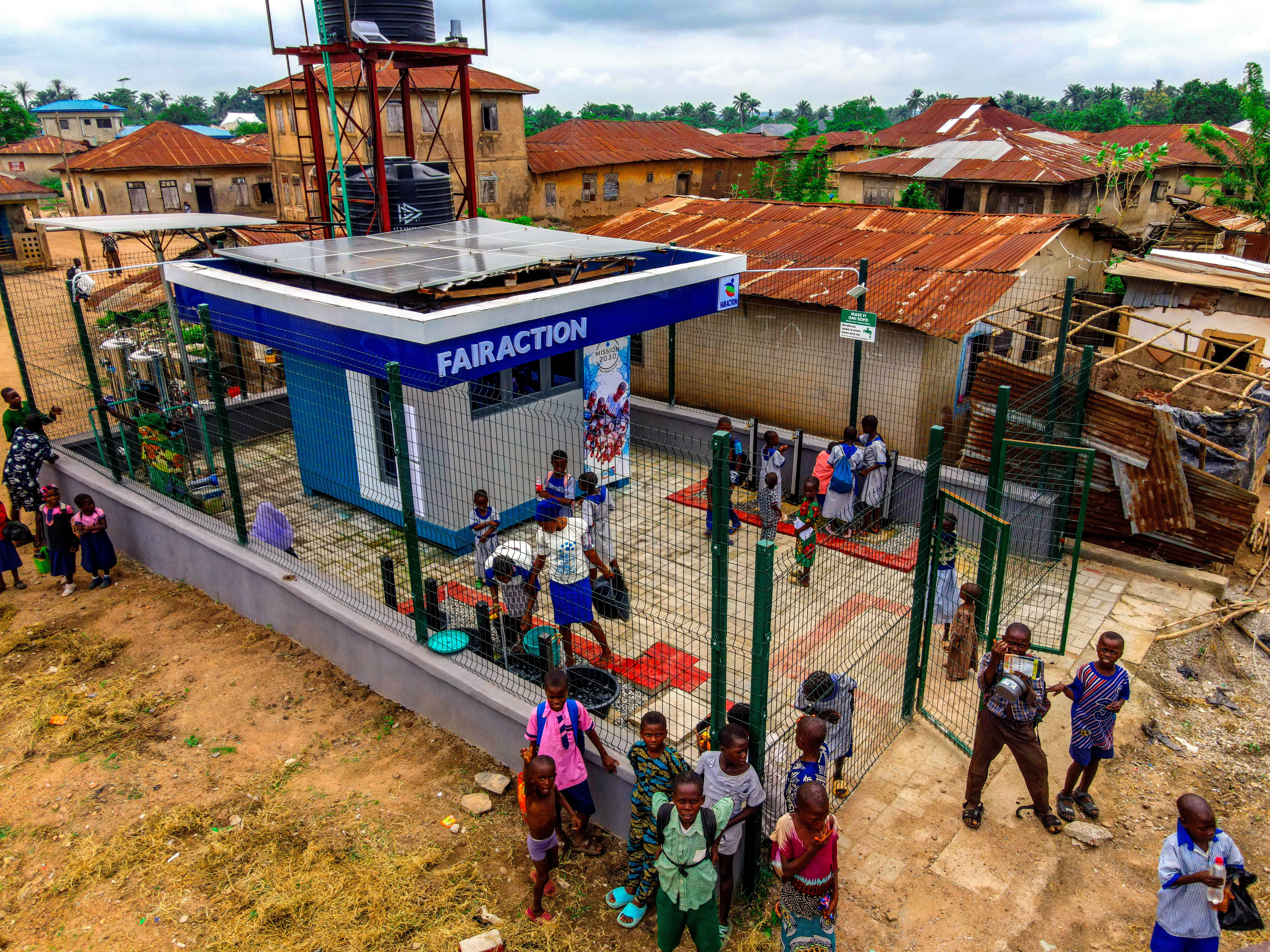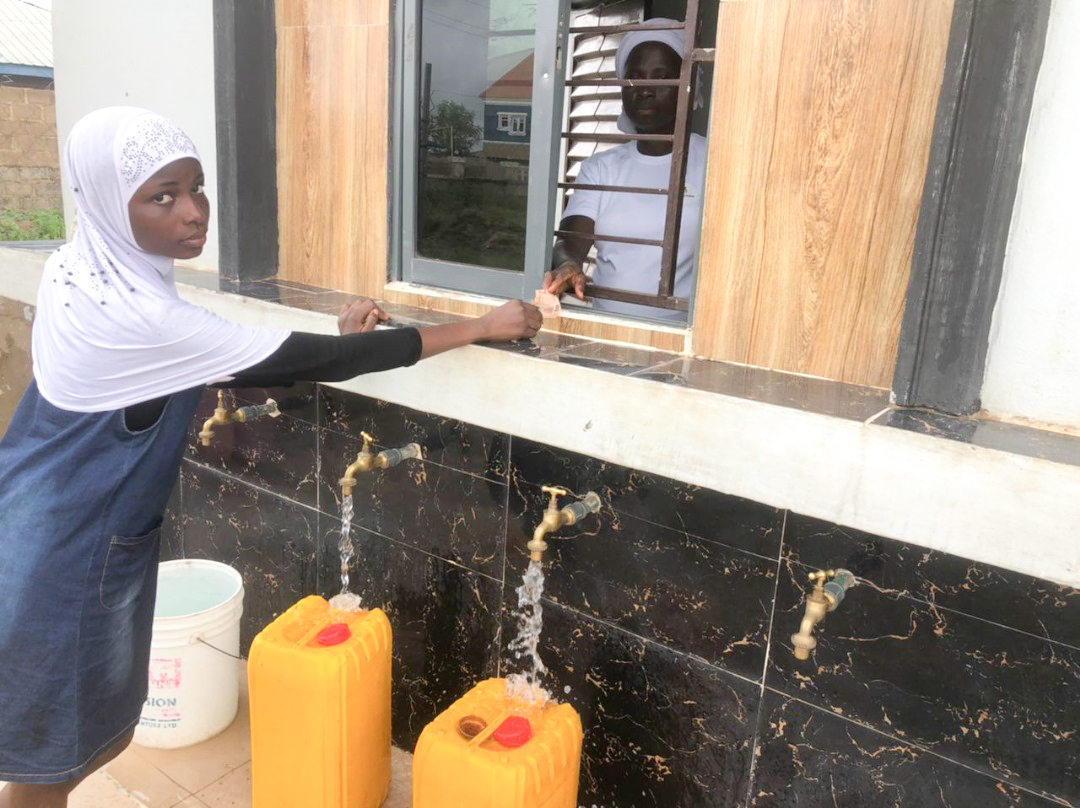A Smart Solution to Nigeria’s Rural Water Crisis
Address structural inequalities
Collaborative action and investment
Devolve decision making
Ensure transparency and accountability
Organization: Fairaction Charity Foundation
2025 LOCAL ADAPTATION CHAMPIONS AWARD FINALIST
Across rural Nigeria, climate change is deepening an already dire water crisis. Rainfall has grown more erratic, droughts last longer, and floods destroy fragile infrastructure. The consequences are severe: boreholes run dry, rivers shrink to trickles, and families—especially women and children—walk for hours in search of water that is often unsafe to drink.
Today, more than 60 million Nigerians lack access to clean water. As the water crisis worsens, traditional solutions like hand pumps fail to guarantee safe water, as they have short life spans and often deliver water that is contaminated with dangerous levels of E. coli, iron, fluoride, manganese, or sulphate. In Oyo State, communities are proving that these challenges can be met with innovation, data, and local leadership.

In five rural communities in the State—Abeku, Isale-Oja, Alabata, Aba Apapa, and Lub Booni—over 5,000 people now access clean drinking water through Smart Water kiosks, which are powered by solar energy, elevated against floods, and equipped with smart sensors to track water flow, quality, and usage. Provided by Fairaction Charity Foundation under the Smart Water Solutions initiative, the solar-powered kiosks have smart monitoring systems to deliver safe, reliable water to rural households.
The initial viability assessment for each village merges hydrogeological data with local experience. In Abeku, for instance, community interviews revealed how boreholes failed in the dry season. The kiosks are then designed with community input, to withstand inundation during heavy rains and to provide clean water during floods, when the risk of disease outbreaks is high.
The smart water kiosks treat groundwater through chlorine and alum dosing, sand filtration, activated carbon, iron removal resin, ion exchange resin, and micron filters before delivering it through hygienic metering taps that prevent recontamination.

The kiosks are managed by the community, who pay a modest fee— ₦800–1,000 (US $1) per 1,000 litres— for operation and maintenance. In Akebu, for instance, Mrs. Adisa manages her community’s kiosk. She monitors usage, ensures system reliability, and shares local insights that feed into Fairaction’s Smart Water Insight Hub. This digital platform aggregates local data into national-level insights, informing community decisions and government policy. Data is also shared on Target 6.1, a platform named after SDG Target 6.1 on the access to clean water for all by 2030, to prevent “aid overlap”.

Youth are trained as technicians, gaining skills in solar repair, water quality testing, and digital reporting, providing livelihood opportunities. Traditional leaders mobilize land, advocate for safe water practices, and ensure local governance reflects cultural traditions.
These kiosks have transformed daily life in the communities they are installed in. Families save time, children return to school, and women gain leadership roles. Most importantly, communities are now better prepared to face an uncertain climate future. For Mrs. Adisa and thousands like her, what was once a fight for survival is now a path toward dignity, empowerment, and climate-secure futures.